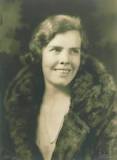Special GoogleHealth Search
Janet Travell, 95, Pain Specialist And Kennedy's Personal Doctor
By DAVID STOUT
Published: August 03, 1997
Dr. Janet Travell Powell, who as President John F. Kennedy's
personal physician treated his chronic back problems and in so
doing helped to inspire revival of the old-fashioned rocking
chair, died on Friday at her home in Northampton, Mass. She was
95.
Dr. Travell,
as she was known professionally, had moved to Massachusetts a
year ago after living in Washington for 35 years.
Dr. Travell became widely known in 1961, when she became the
first woman to be personal physician to a President. The
appointment caused a minor stir, especially in the military,
which had been providing medical care to Presidents, their
spouses and their children since the 1920's.
Kennedy
praised his doctor after announcing her selection. The President
had been relying on her since 1955, when she saw the Senator
from Massachusetts after the second operation on his back.
Kennedy had been injured in World War II when the PT boat he
commanded was sunk, and his back caused him pain for the rest of
his life.By the mid-1950's, Dr. Travell had established
herself in the New York City medical community, first as a heart
specialist, then as a specialist in treating muscle pain and in
general pain management.The doctor treated Kennedy with
Novocain to relax cramps in his spinal muscles, and she
suggested that he wear custom-made shoes after discovering that
his left leg was three-quarters of an inch shorter than his
right. But her lasting contribution to Presidential folklore (if
not her main one to medicine) was the popularity of the rocking
chair.She believed that a rocking chair alleviated
lower-back tension by keeping the muscles moving, contracting
and relaxing. Throughout his brief Presidency, Kennedy's oak
rocker with a cane seat was a familiar sight to White House
photographers and, consequently, the public.Early in her
White House days, Dr. Travell was the focus of some political
infighting, enough that one newspaper speculated that she might
be forced to resign. As she recalled later in an interview, she
became aware of the dissension and approached the President.
''I will do anything I can for you as long as you wish,'' Dr.
Travell told him. ''But I am ready to leave at a moment's
notice, if that is your pleasure.'' Kennedy replied: ''I don't
want you to leave. If I do, I will let you know.''Dr.
Travell stayed at the White House after Kennedy's assassination
in 1963, treating President Lyndon B. Johnson as well as other
members of the Kennedy family and other Washington politicians.
After leaving the White House in 1965, she resumed teaching,
joining the faculty of George Washington University, where she
was named professor emeritus in 1988.Dr. Travell had taught
clinical pharmacology at Cornell University in the 1940's and
1950's before turning to the study of pain, particularly muscle
spasms, an area in which her father, Dr. Willard Travell of New
York City, had specialized.Born in New York, Janet Travell
graduated from Wellesley College and Cornell University's
medical school. She began her career at New York Hospital in the
late 1920's, studied arterial disease at Beth Israel Hospital
and was a cardiologist at Sea View Hospital in Staten Island
before joining the Cornell faculty.Her husband, John W. G.
Powell, died in 1973. Survivors include two daughters, Janet
Pinci, of Milan, Italy, and Virginia P. Wilson, of Northampton,;
a brother, Clark Travell, of Point Verde Beach, Fla. and
numerous grandchildren and great-grandchildren.
Janet
Travell, 95, Pain Specialist And Kennedy's Personal Doctor
| |
| |
|
|
|
|
|
|